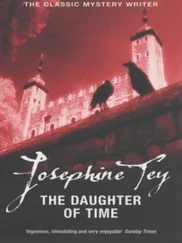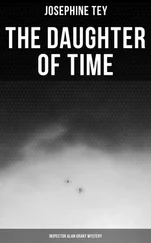Grant asked if they had a photograph of Charles.
Yes, they had several, but of course they were of Charles when he was much younger.
They showed him the photographs, and Grant saw why Bill Kenrick, dead, looked not too unlike the Charles Martin that his family had remembered. One thin dark man with marked eyebrows, hollowed cheeks, and straight dark hair looked very like any other similar young man when the individuality of life was quenched. They did not even have to have the same colour of eyes. A parent receives a message saying: Your son is dead as the result of a regrettable accident; would you please identify him as your son and arrange for the burial. The bereaved parent is presented with his dead son’s papers and belongings and is asked to identify the owner as his son. There is no question in his conditioned mind; he accepts what he sees, and what he sees is what he expected to see. It would not occur to him to say: Are this man’s eyes blue or brown?
In the end, of course, it was Grant who submitted to questioning. Why was he interested in Charles? Had Charles after all left some money? Was it that Grant was looking for the legal heirs, perhaps?
No, Grant had promised to look Charles up on behalf of a friend who had known him on the Persian Gulf coast. No, he did not know what the friend wanted of him. He understood that there was some suggestion of a future partnership.
In the expressed opinion of the Martin family the friend was lucky.
They gave him Armagnac and coffee and little biscuits with Bath-bun sugar on them, and asked him to come again if he was ever in Toulon.
On the doorstep he asked if they had possession of their son’s papers. Only his personal ones, they said: his letters. The official ones they had not bothered with or thought about. They were no doubt still with the Marseilles police, who had first made contact with them when the accident happened.
So a little more time was wasted in making friends with the Marseilles officials; but this time Grant spent no energy on conscientiously-unofficial methods. He produced his credentials and asked for a loan of the papers. He drank a sirop , and signed a receipt. And he caught the afternoon plane to London on Friday afternoon.
He had two more days. Or one day and a Sunday, to be accurate.
France was still a jewelled pattern as he flew back over it, but Britain seemed to have disappeared altogether. Beyond the familiar outline of the western European coast there was nothing but an ocean of haze. Very odd and incomplete the map looked without the familiar shape of that very individual island. Supposing there never had been that island: how different would the history of the world have been? It was a fascinating speculation. An all-Spanish America, one supposed. A French India; an India without a colour-bar and so racially intermarried that it had lost its identity. A Dutch South Africa ruled by a fanatic Church. Australia? Who would have discovered and colonised Australia? The Dutch from South Africa, or the Spaniards from America? It was immaterial, he supposed, since either race would in a generation have become tall, lean, tough, nasal, drawling, sceptical and indestructible. Just as all Americans eventually began to look like Red Indians even if they entered the country as broad large-boned Saxons.
They dropped into the ocean of cloud and found Britain again. A very mundane, muddy, and workaday place to have changed the history of a world. A steady drizzle soaked the land and the lieges. London was a water-colour of grey reflections with spots of vermilion oil paint where the buses plunged dripping through the haze.
All the lights were on in the finger-print department although it was still daylight; and Cartwright was sitting just as he had last seen him—as he had always seen him—with a half-drunk cup of cold tea at his elbow, the saucer filled with cigarette butts.
‘Something I can do for you this beautiful spring afternoon?’ Cartwright said.
‘Yes. There is one thing I want very much to know. Have you ever drunk the second half of a cup of tea?’
Cartwright considered this. ‘Come to think of it, I don’t know that I ever have. Beryl usually takes my cup away and fills it up with fresh stuff. Something else off the cuff? Or is this just a social call?’
‘Yes, something else. But you’ll be working for me on Monday, so don’t let your sense of benevolence get out of hand.’ He put Charles Martin’s papers on the table. ‘When can you do these for me?’
‘What is this? French identity papers. What are you getting into—or do you want to keep it to yourself?’
‘I’m just having one last bet on a horse called Flair. If it comes off I’ll tell you about it. I’ll pick up the prints tomorrow morning.’
He looked at the clock and reckoned that if Tad Cullen was ‘dating’ Daphne, or any other female creature, tonight, he would at this moment be dolling himself up in his hotel room. He left Cartwright and went to a telephone where he could talk unheard.
‘ We-e-ll! ’ said Tad joyously, when he heard Grant’s voice. ‘Where are you talking from? Are you back?’
‘Yes, I’m back. I’m in London. Look, Tad, you say you’ve never known anyone called Charles Martin. But is it possible that you knew him under another name? Did you ever know a very good mechanic, very good with cars, who was French and looked a little like Bill?’
Tad thought this over.
‘I don’t think I’ve ever known any mechanic who was French. I’ve known a Swedish mechanic and a Greek mechanic, but neither of them was in the least like Bill. Why?’
‘Because Martin worked in the Middle East. And it is just possible that Bill got those papers from him before he ever came to Britain at all. Martin may have sold them to him. He was—is: he may be living—a lazy creature and probably very hard-up at intervals. Out there, where no one bothers very much about credentials, he might have tried to cash them.’
‘Yes; he might. Someone else’s papers are usually more valuable than your own out there. To have around, I mean. But why would Bill buy them? Bill never did anything on the side.’
‘Perhaps because he looked a little like Martin. I don’t know. Anyhow, you yourself have never run into anyone like Martin in the Middle East?’
‘Not anywhere, that I can think of. What did you get? Out of the Martins. Anything worth while?’
‘I’m afraid not. They showed me photographs; which made it clear how much he would look like Bill if he was not alive. Something that we knew already. And of course the fact that he had gone East to work. Any answers to the advertisement?’
‘Five.’
‘ Five? ’
‘All from fellows called Bill Kenrick.’
‘Oh. Asking what was in it for them?’
‘You’ve got it.’
‘Not a word from anyone who knew him?’
‘Not a peep. And nothing at the Charles Martin end either, it seems. We’re sunk, aren’t we?’
‘Well—waterlogged, shall we say. We have one remaining asset.’
‘We have? What is that?’
‘Time. We have forty-eight more hours.’
‘Mr Grant, you’re an optimist.’
‘You have to be in my business,’ Grant said, but he did not feel very optimistic. He felt flat and tired. He was within an ace of wishing that he had never heard of Bill Kenrick. Wishing that he had come down that corridor at Scoone just ten seconds later. In ten more seconds Yughourt would have realised that the man was dead and would have shut the door and gone for help; and he, Grant, would have walked down that empty corridor and stepped down on to the platform unaware that there had ever existed a young man called Bill Kenrick. He would never have known that anyone had died on the train. He would have driven away with Tommy to the hills, and no words about singing sands would have disturbed his holiday. He would have fished in peace, and finished his holiday in peace.
Читать дальше












